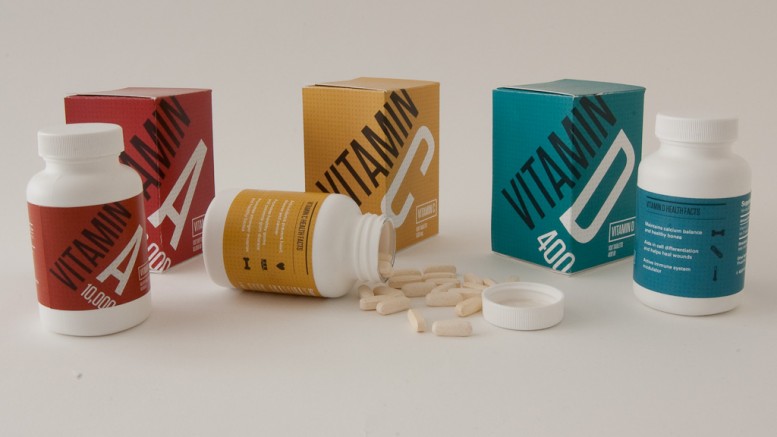Vitamin deficiency is something one in three Americans suffers from. But would you know it if you saw it—or felt it? Most people go through their daily lives not realizing they’re deficient in one or more vitamins. In fact, they get so used to functioning without adequate levels, that it becomes the norm for them. It’s not until they correct their deficiency that they realize the potential to feel so much better each day!
Addressing vitamin deficiency isn’t as simple as taking a daily multivitamin. While this can help balance out slightly lacking levels, true vitamin deficiency requires a more specific approach. The first step is understanding which vitamin(s) specifically you’re deficient in.
The best way to identify a vitamin deficiency is to schedule a nutrition panel with your doctor. This simple, inexpensive blood test will gauge the presence of all major vitamins and minerals in your body, and can instantly tell you where you’re not getting enough. In the meantime, here’s a look at six of the most common vitamin deficiencies, their symptoms and why it’s important to address them.
Vitamin D deficiency
If you’re not getting enough Vitamin D, you’re leaving your body open to an increased risk of illness. Vitamin D is important for so many different physiological systems, including muscles, nerves, bones and even skin. Unfortunately, as many as 42% of adults are Vitamin D deficient. Consider introducing more fatty fish into your diet and eating eggs for breakfast to get more of this vitamin.
Vitamin B12 deficiency
Follow a vegetarian diet? Make sure you’re getting enough Vitamin B12. This vitamin is prevalent in animal products, and your own body is incapable of producing it. Some studies suggest that 80-90% of vegans are deficient in Vitamin B12 as a result! Getting enough is imperative for brain health, as well as blood production.
Calcium deficiency
We all know by now that calcium is essential for strong bones. Unfortunately, kids and seniors are susceptible to deficiency. Lack of calcium hampers growth and development in kids and can lead to osteoporosis in seniors. Dairy and leafy greens are key sources of calcium; however, supplements make it easy for many people to get enough calcium without an overly fatty diet.
Vitamin E deficiency
While clinical Vitamin E deficiency is rare, many people simply fall short of adequate levels. This is another vitamin that’s difficult to get through food—it’s most prevalent in nuts and nut-derived oils, which are extremely fatty. Supplementing Vitamin E can help keep antioxidant levels high in your body, to protect against free radicals and the oxidative stress they cause.

Magnesium deficiency
Magnesium plays a role in more than 300 enzyme reactions in your body. Unfortunately, as much as 70% of the population doesn’t get enough of this key mineral on a regular basis. Fatigue, weakness and restlessness are common signs of magnesium deficiency. Nuts, grains and leafy greens are critical sources of magnesium, and dark chocolate is a great source for those who have a taste for it.
Vitamin A deficiency
Key for healthy teeth, skin, hair and bones, Vitamin A plays a significant role in everyday health, which is why it’s surprising that 40-50% of kids are deficient. Most adults tend to get enough of this vitamin. Veggies and leafy greens are a great source of Vitamin A, which is why it’s so important to make sure kids get a healthy, balanced diet!
These are far from the only vitamin deficiencies a person might be living with. From iodine to sodium, Vitamin C to folic acid, your body could be functioning without any number of key vitamins. Identifying deficiencies is the first step in treating them.
How to address daily vitamin deficiency?
Modifying your diet is far and away the best approach to improving your vitamin intake. Healthy foods not only give your body access to a ready source of vitamin-rich nutrition, it also delivers these vitamins in a natural way that’s easy for your body to break down and process.
If your diet prohibits you from eating certain foods, supplementation is always an option. Daily multivitamins are good for balancing small deficiencies; more effective is a targeted supplementation plan. This is why a nutrition blood panel is so important. Being able to identify the vitamins you’re heavily deficient in vs. those with mild deficiency allows you and your physician to create a supplementation plan that’s optimal for your body.
Often, a combination of diet modification and supplementation yields best results. For example, you might add more leafy greens to your diet to get magnesium and folic acid, while supplementing hard-to-get Vitamins B12 and E. What matters most is your ability to get your body the nutrients it needs to function at its best.
Don’t ignore a vitamin deficiency!
It’s easy to blame persistent fatigue on the stresses of life or your chronic headaches on a bad night’s sleep. But what you might actually be living with is a vitamin deficiency: something that’s correctable, given the right course of action. Listen to your body and pay attention to the signs, and make sure it’s getting the vitamins it needs to support itself.
